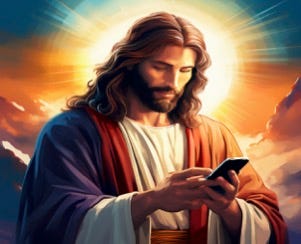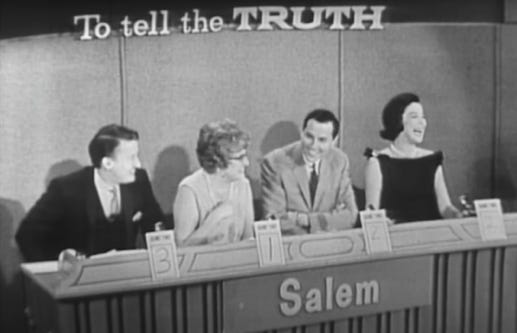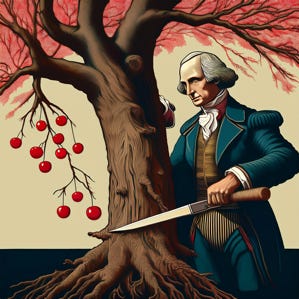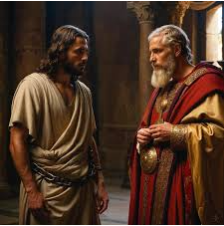An Inconvenient Truth:
Seek and Find
x
A Preface
When I was a boy, growing up in the Fifties/Sixties (last Century) there was the popular game show on our black-and-white television set, “To Tell the Truth.” There was a person of some notoriety who teamed up with two impostors to match wits with a panel consisting of four well-known celebrities. The object was to try to fool the celebrities into believing the two impostors. Most important, perhaps, was to remember it was only a game.
The challenge and struggle to distinguish between truth and falsehood, fact and fiction -- and even what might be determined or believed to be “real” or “unreal” -- seems to be an increasing human dilemma.
As children we also heard the mythic tale about our first president who was unable to tell a single lie to his father when he cut down a cherry tree. Nowadays, of course, the current, duly elected leader of our “free” world can place his hand on a Bible, then proceed to spew misleading claims that are either mistaken un-truths or outright, deliberate lies; which have been confirmed and archived, with little dispute. So, what’s the truth, the whole truth, and nothing but the truth?
Truth Seekers: Where to Turn
Nowadays, if one were to strive to get to the bottom of anything, one might be tempted to pick up your cell phone and seek “the truth” from what is sometimes perceived to be an all-encompassing, unbiased source; namely “artificial” intelligence. So, I asked ChatGPT “What is the Truth?” and in seconds it replied with its own version of something that it carefully clarified was not absolute:
“The concept of truth can vary depending on philosophical, cultural, and personal perspectives. Broadly speaking, truth often refers to the quality of being in accordance with fact or reality. … Ultimately, what one considers to be true can be influenced by individual experience, evidence, and social context.”
And, then it asked me,
“What specific aspect of truth are you curious about?”
So, I asked this artificial inquisitor about the distinctive relationship between what is considered true and what is false? Without hesitation, it replied,
“The relationship between truth and falsehood is foundational in logic, philosophy, and epistemology. Here are some key distinctions: Truth: A statement or belief that accurately reflects reality or facts. Falsehood is a statement or belief that does not align with reality or facts.”
I can vaguely recall taking an undergrad philosophy course in epistemology (the study of the nature and limits of human knowledge) and phenomenology (the study of lived experience). But, before getting too far into the weeds (or, before the reader may doze off …) it is essential to remember that “artificial” intelligence, of course, is exactly that. It is artificial. It is the collection of human knowledge, intelligence and thought processes of what might be verifiably known up to this point; but which is (presumably) interpreted and expressed without human bias. And, if you can believe that, it raises the whole matter of trust or distrust, belief, or disbelief!
So, the same thing, of course, can be said of any humanly constructed system of beliefs. Obvious examples are the two fundamental ways in which we have historically framed our belief systems; namely, in religious and political belief structures.
As an example, from the Christian faith tradition and its canonized scriptures, take the fanciful tale of the religious figure of Jesus, and his trial before the Empire’s authoritative / political representative, Pilate (John 18).
Interrogation and Exploration into Truth-telling
Because it could be conjectured there were no court reporters, press or other eye-witnesses present to record and preserve any archival footage of the encounter, it was instead left to a word-of-mouth oral tradition to try to just imagine, tell, re-tell and interpret what might have happened; in order to try to promote a particular religious claim: namely, the “divine” kingship of Jesus that – to quote scripture – was not “of this world.” Obviously, not yet anyway!
In response to Pilate’s interrogation, the Jesus figure says, “Mine is not a secular government. If my government were secular my companions would fight to keep me from being turned over to the Judeans. But as it is, my government does not belong to the secular domain.”
“So, you are a king!” says Pilate.
“You’re the one who says I’m a king,” responds Jesus. “This is what I was born for, and this is why I came into the world: to bear witness to the truth. Everyone who belongs to the truth can hear my voice.”
“What is truth?” Pilate asks. And then the story abruptly ends with this dangling question left unanswered. *
The political figure in this story is totally befuddled. He judges Jesus, based on the only structural paradigm he can comprehend; about the kingdoms of this world. Because Jesus is his one and only witness in this trumped-up trial – with his only defense being that of telling “the” truth as he claims it to be – the interrogation ends, leaving us all puzzled when Pilate asks: “What is the truth?”
Truth Be Told: The Gospel Truth
Alas, if that 1st Century Galilean peasant sage were alive today, perhaps he might try to answer Pilate’s question by picking up his cell phone and asking ChatGPT for an answer to Pilate’s question. Instead, the historical figure of Jesus is condemned to death by the political and religious powers of his day; in the same world of lies and mistruths we still witness and experience on a daily basis.
But the truth does not die with Jesus. Amidst all the bad news in our world there remains the “good news” of what is still true about another kind of world we might become; described again and again by the teachings and life-example of the Galilean peasant sage.
Retaliatory violence will never resolve the dispute with your enemy. Your neighbor is the one in need that you’d prefer to pass by on the other side. Pompous liars are the poorest among us, and deserve our pity. A little bit of trust can vanquish fear. Hope is an eternal spring.
Such is the gospel truth that could one day set us free. If only …
*John 18:11-14, 28-38 - Jesus Seminar translation
© 2025 by John William Bennison, Rel.D. All rights reserved.
This article should only be used or reproduced with proper credit. To read more commentaries by John Bennison from the perspective of a Christian progressive go to the Archives.






